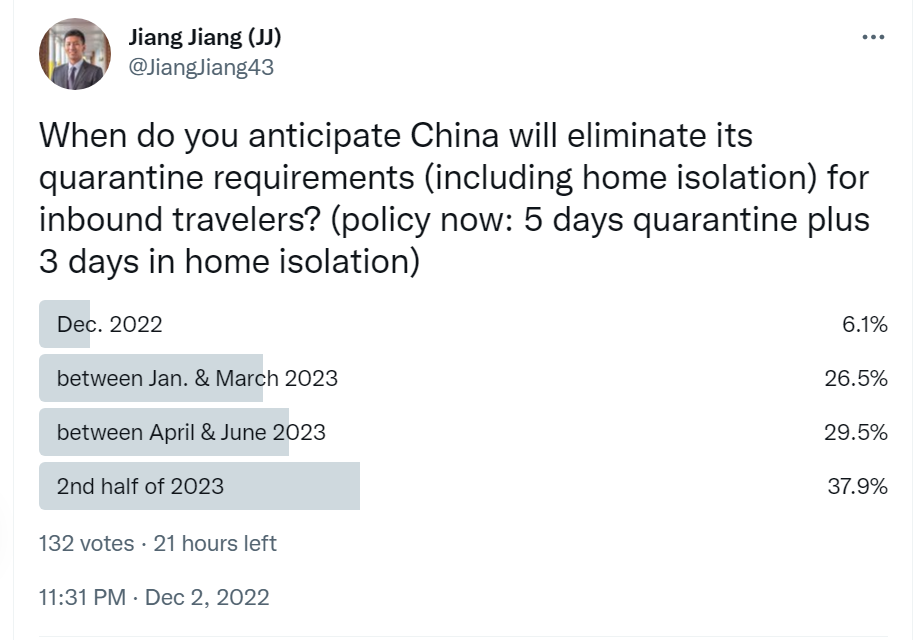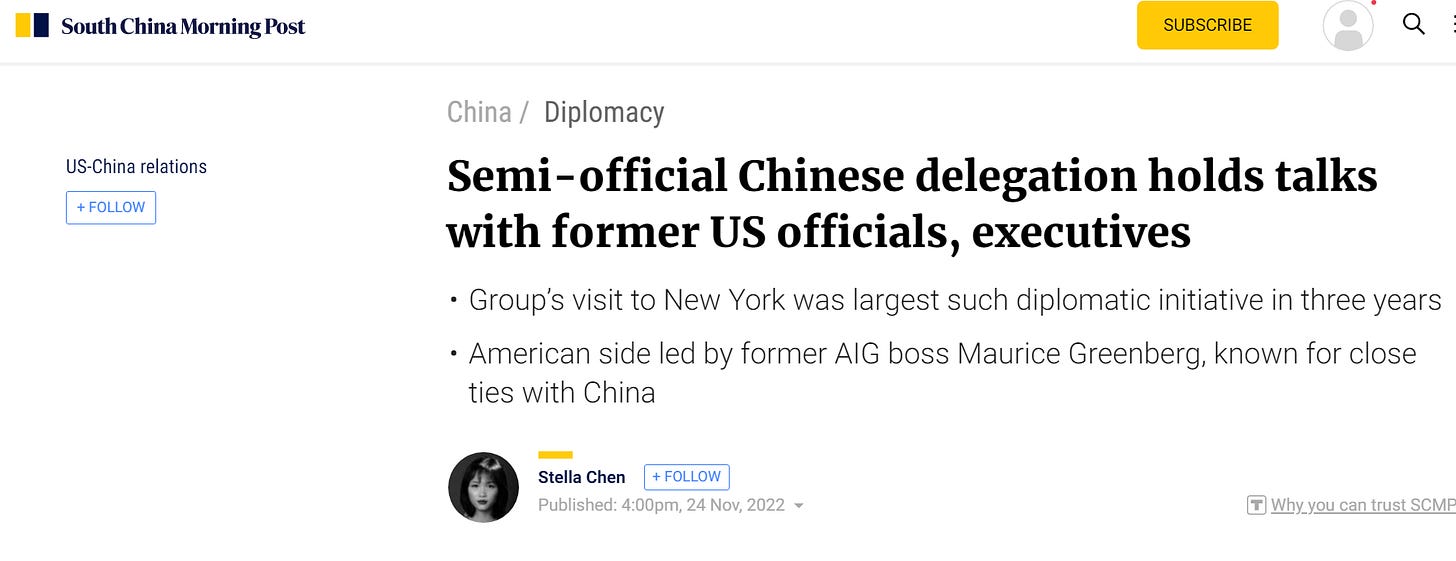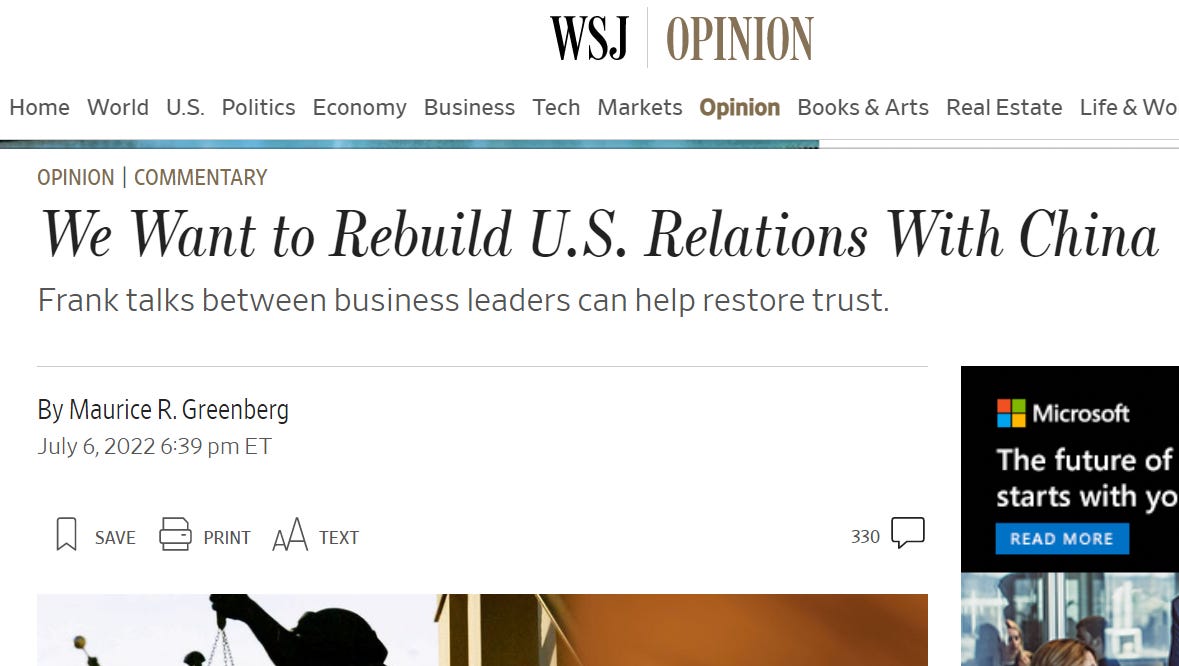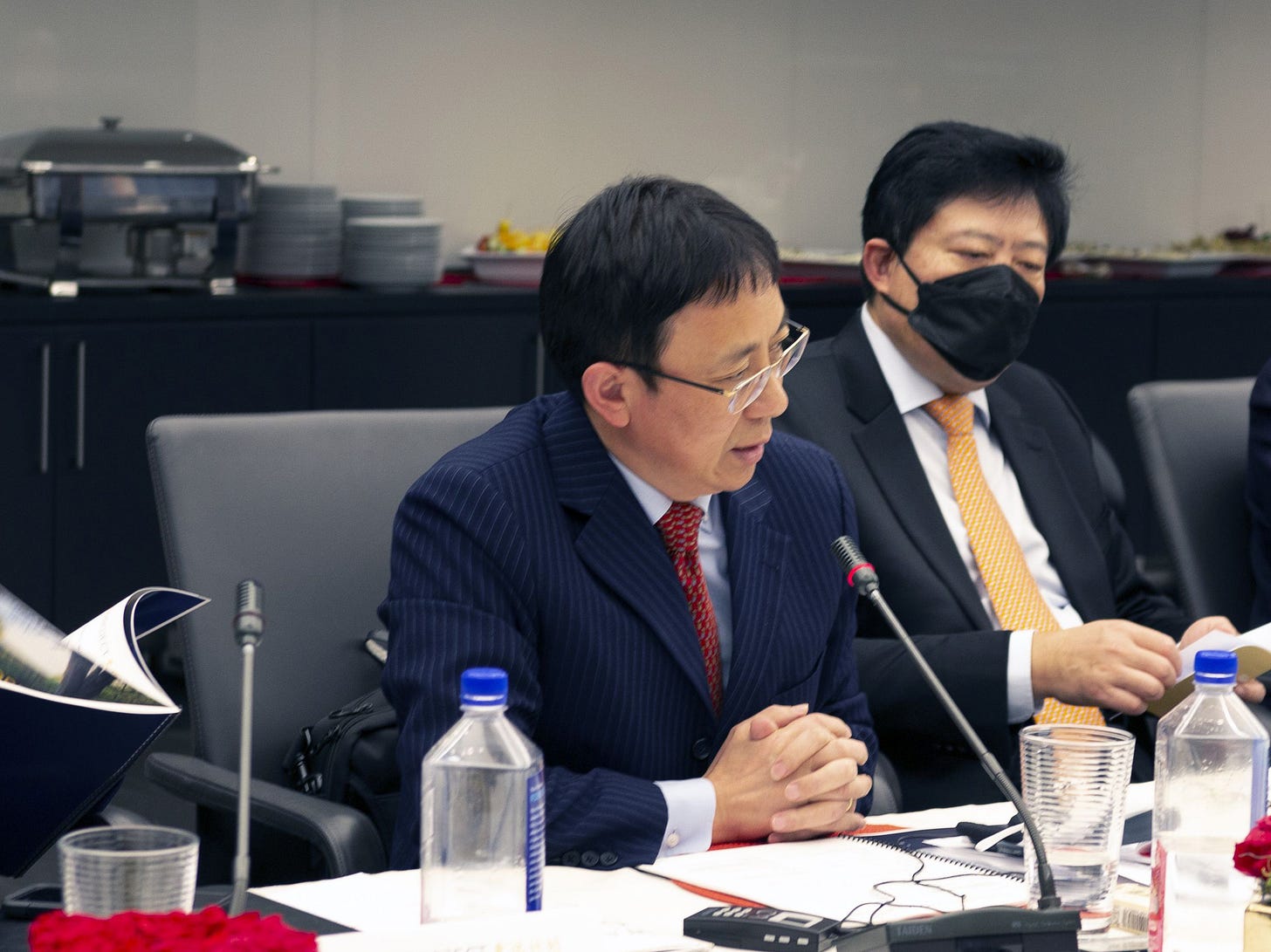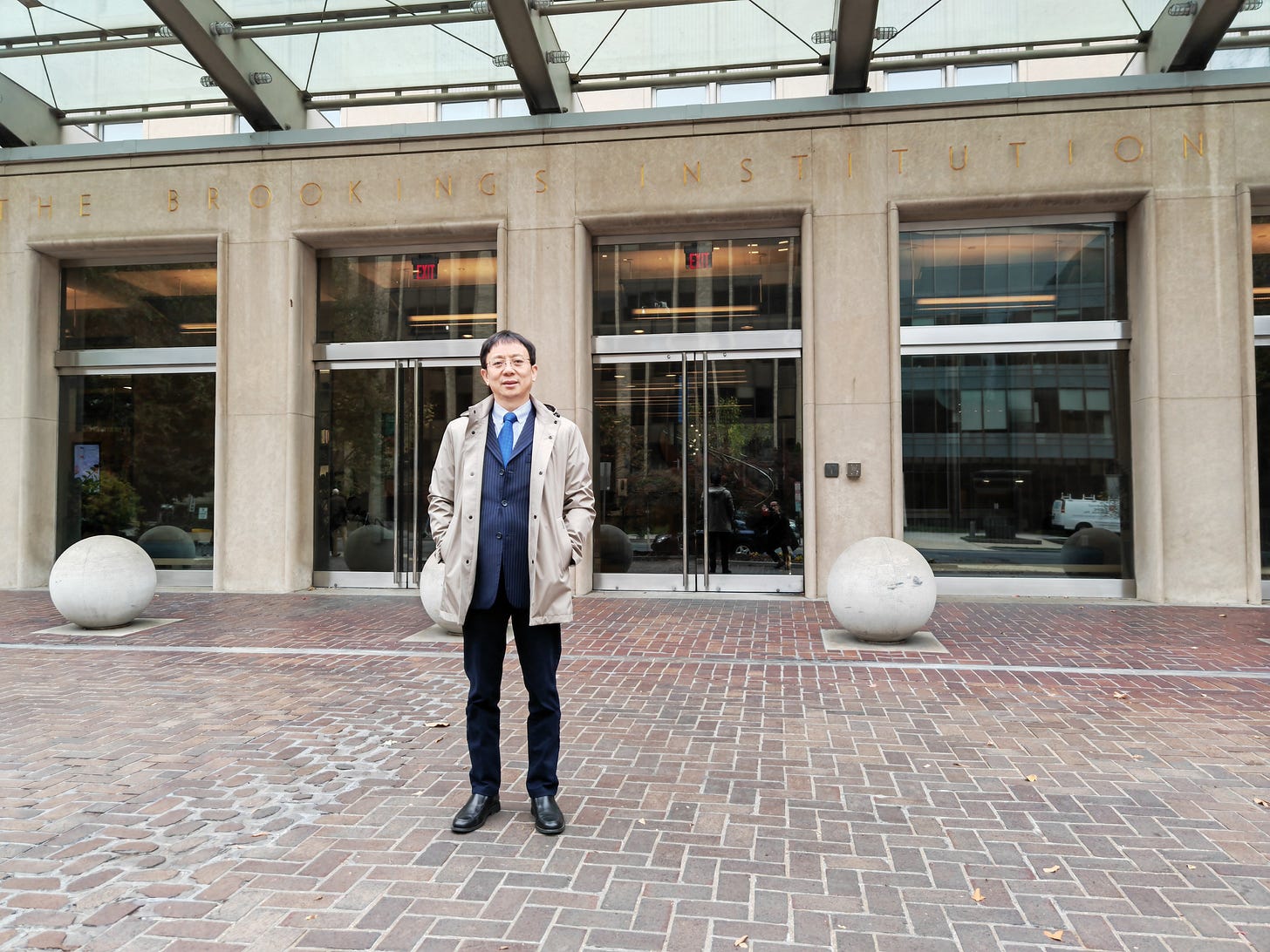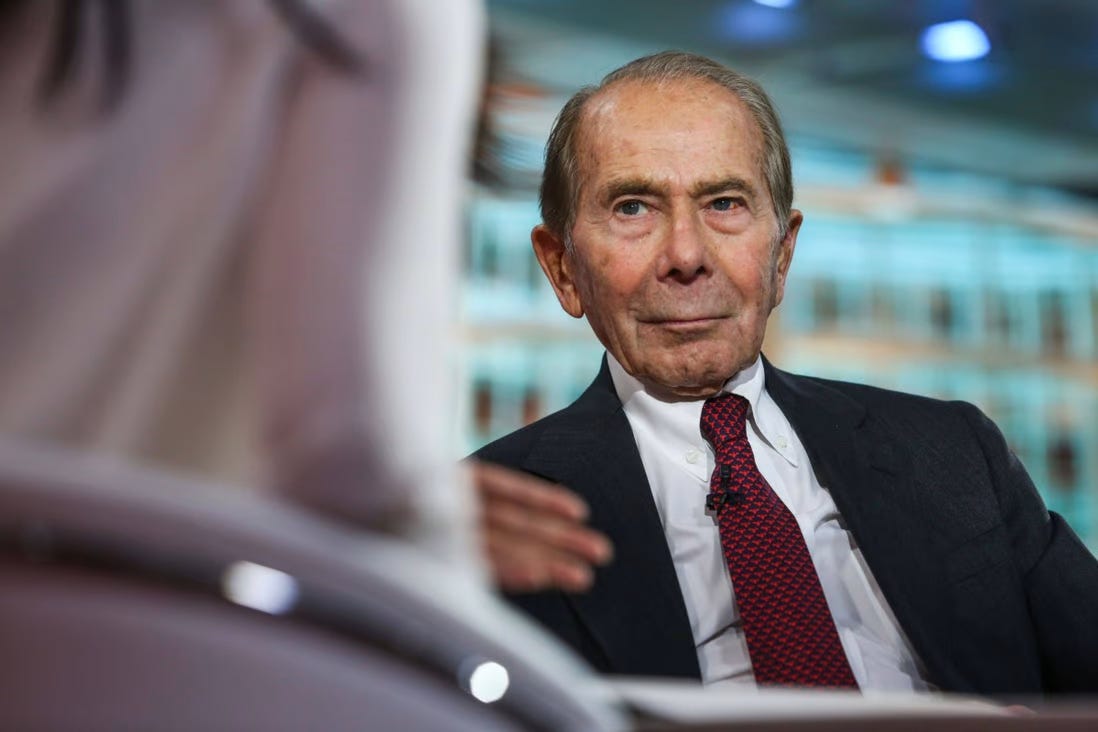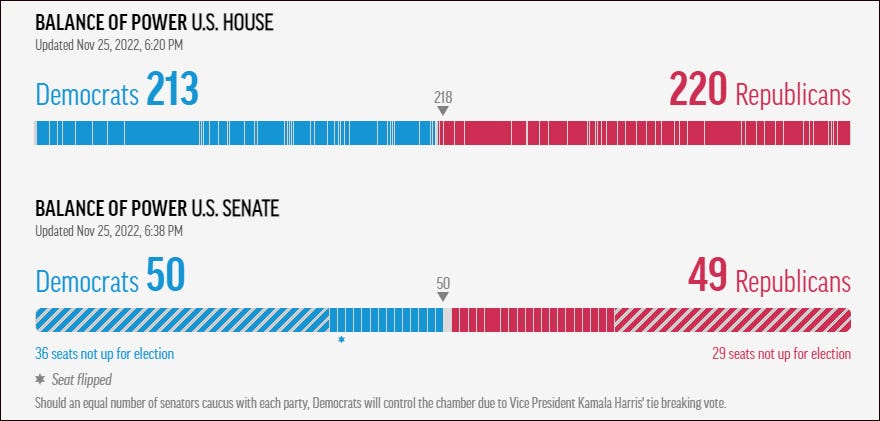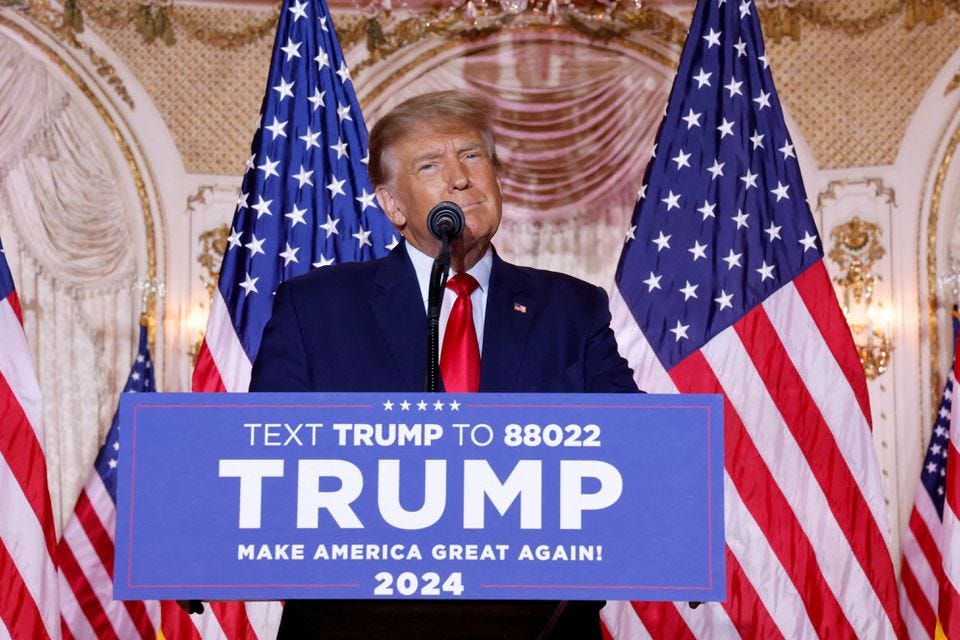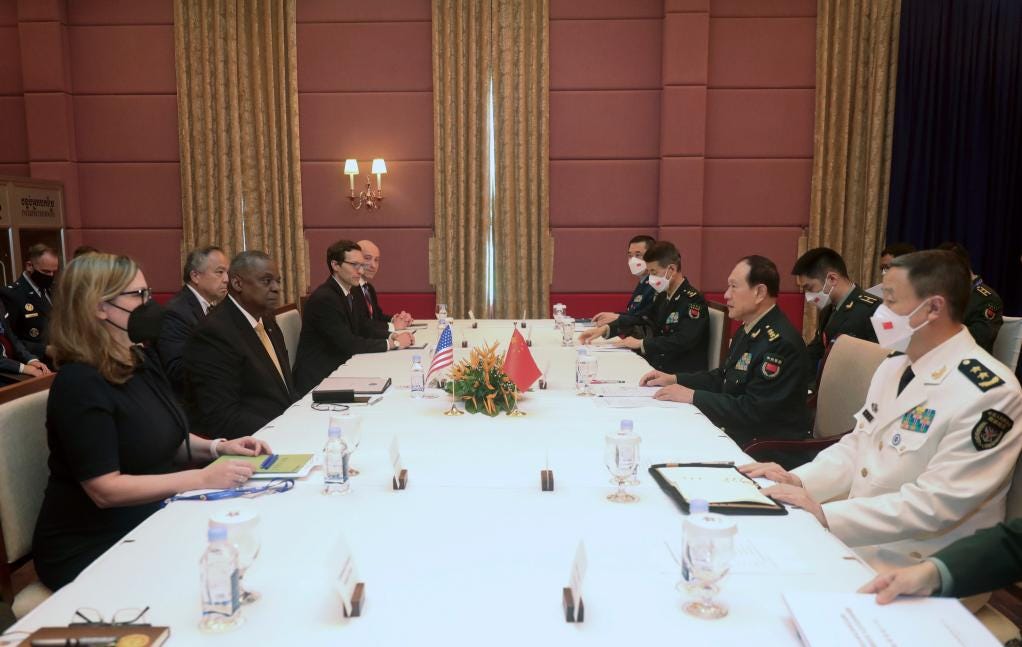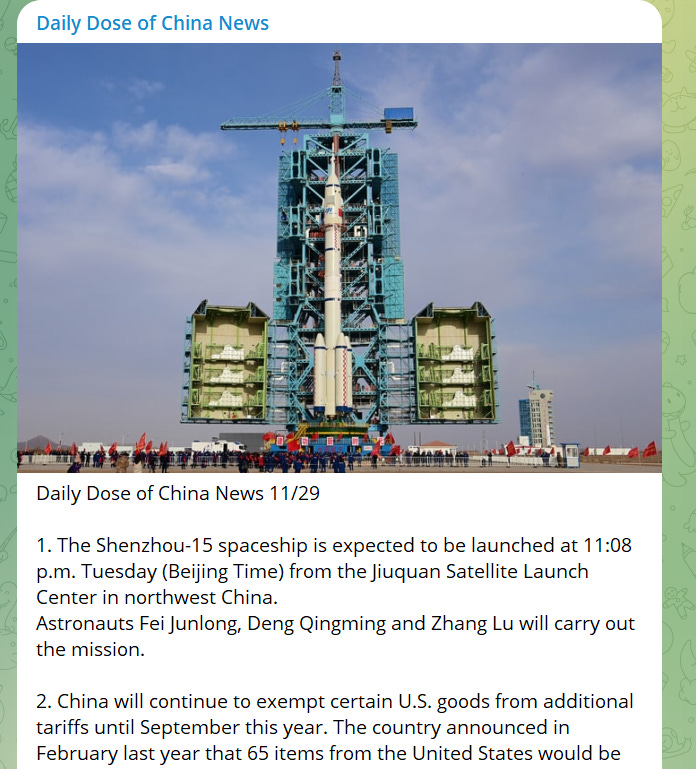How do high-level exchanges between Chinese and American groups help to de-escalate bilateral tensions?
"In general, most U.S. scholars take a pessimistic view of US-China relations, and their view is gaining an upper hand in the US. Few now have the courage to express a positive attitude publicly."
China is gradually optimizing and refining its COVID-19 response as the pathogenicity of the Omicron virus declines. Some high-profile Chinese economists on Saturday published a joint article with recommendations on opening up economic activities which have been greatly impacted by the epidemic in recent years.
However, almost all of the optimized measures in terms of travel restrictions are currently focused on domestic trips. So far, there is no indication of when China will lift and relax its requirements for inbound travelers. Your Ginger River conducted a quick Twitter poll to seek opinions regarding the timing of the lifting of restrictions on inbound travelers:
A little over two-thirds of poll respondents think China won't remove all restrictions before April of next year, while some others think your Ginger River might be being a little overly optimistic, demanding an option for "Spring 2024". What are your thoughts on that? I invite you to participate in the poll by clicking this link.
At a time when geopolitical tensions are on the rise, unrestricted inbound travel will help China increase its people-to-people ties with other nations. Last month, a diverse group of former Chinese officials and scholars visited New York in the largest semi-official diplomatic initiative in Sino-US relations in three years, according to SCMP.
The visit was viewed as a positive response to U.S. business legend Maurice R. Greenberg's call for restoring trust between the two countries, and many saw it as part of efforts by both sides to de-escalate bilateral tensions.
What was high on the agenda for the Chinese delegation? What a difference can the dialogue make? What does the U.S. side think is the most important for US-China relations?
Today's piece is a transcript of an interview conducted by Guancha.cn with Wu Xinbo, dean of the Institute of International Studies at Fudan University. Professor Wu is a member of the Chinese delegation which was headed by Wang Chao, a former vice-minister of foreign affairs and director of the Chinese People's Institute of Foreign Affairs (CPIFA).
Professor Wu shared his observations from the delegation's visit to the United States, as well as some in-depth insights into the 2022 midterm elections in the US, bipartisanship and social and political ecosystems in the US, and the meeting between Chinese and U.S. defense chiefs.
Wu Xinbo in the dialogue with U.S. counterparts (source: Guancha.cn)
Members of the delegation also included:
Chen Deming, former minister of commerce
Qiu Yuanping, former director of the Overseas Chinese Affairs Office of the State Council and former executive deputy director of the Office of the Foreign Affairs Commission of the Communist Party of China (CPC) Central Committee
Ning Jizhe, former deputy director of the National Development and Reform Commission
Cui Tiankai, former Chinese ambassador to the US
Zhu Min, former deputy governor of the People’s Bank of China
Tang Yongsheng, deputy dean of the National Security Institute of the National Defense University
Yu Jianlong, vice chairman of the China Council for the Promotion of International Trade
Wang Jisi, president of the Institute of International and Strategic Studies at Peking University
Lin Zhenyi, director general of the Department of Scientific Research at the Party School of the CPC Central Committee (National Academy of Governance)
Zhong Baoshen, chairman of LONGi Green Energy Technology Co., Ltd.
Ni Pin, member of the Board of Directors of Wanxiang Group.
Guancha: From Nov. 8 to 16, the CPIFA organized a high-level delegation to visit New York, with members coming from policy, academic and business circles. The visit brought lots of attention as it took place ahead of the first face-to-face meeting between the leaders of China and the US since the COVID-19 pandemic. As a member of the Chinese delegation, could you brief us on the main agenda of the delegation?
Wu: The Chinese delegation visited the US mainly for two dialogues. From Nov. 10 to 11, we had a dialogue with the U.S. delegation led by Maurice R. Greenberg, chairman and CEO of Starr & Co. Those present were former government officials and business leaders from the two countries. The second dialogue took place on Nov. 14 at the 4th meeting of the U.S.-China Eminent Persons Forum co-hosted by the CPIFA and the U.S.-China Transpacific Foundation (UCTPF).
After that, I went to Washington on the afternoon of Nov. 14. There, I visited some think tanks, such as the Brookings Institution and the Center for Strategic and International Studies (CSIS), and attended the academic conference hosted by Georgetown University. I also met with the officials in charge of China affairs in the U.S. Department of State.
It has been three years since I visited the US. I visited the country four times in 2019, the last happening in December, 2019.
Guancha: The dialogue of former government officials and business leaders from China and the US was an important item on the delegation’s agenda. What do you think of the dialogue?
Wu: During the dialogue, we had a candid and in-depth discussion of some important issues concerning China-U.S. relations. The discussion focused on how to improve and develop the bilateral relations. Despite some disagreements, we put forward many constructive opinions in a very pragmatic and calm way. In the current political atmosphere for China-U.S. relations, the dialogue was hard to come by. It can be said that the dialogue has played a positive role in the improvement and development of the bilateral relations, demonstrating the important friendly force of China and the US.
Guancha: What are your feelings about China-U.S. relations during the visit? Or do you have any new ideas after the visit?
Wu: I think there has been a significant change in how the US sees its relationship with China.
Before the pandemic, former U.S. President Donald Trump and the U.S. government started a trade war and initiated strategic competition with China. At that time, the way the U.S. dealt with its relationship with China had already changed significantly, but was still in the process of development. During this visit, I clearly felt that a new pattern has taken shape, from the way the U.S. looks at China, where the bilateral relations would go, to its policies toward China.
Guancha: You also visited some think tanks in the US and met with U.S. experts who study China. What’s their attitude about China-US relations?
Wu: On the whole, their opinion is divided on this issue:
Some think US-China conflicts are inevitable. They believe the U.S. should further contain and suppress China, and decouple from China in all aspects such as economy, technology, and people-to-people and cultural exchanges. The U.S. wants to reduce its reliance on China in terms of industrial and supply chains. And it is trying to prevent China from benefiting from China-U.S. exchanges. Besides, they also agitate for making preparations for the worst scenario, or major U.S.-China conflicts.
Other scholars take a positive, constructive attitude toward the bilateral relations. They advocate for enhancing communication between the two countries and promote pragmatic cooperation in some areas. They think the two sides should manage differences and avoid conflicts as far as possible.
In general, most of them take a pessimistic view of US-China relations, and their view is gaining an upper hand in the US. Few now have the courage to express a positive attitude publicly.
Wu Xinbo visits the Brookings Institution in the US. (source: Guancha.cn)
Guancha: Regarding its relationship between China, what is the US most concerned about?
Wu: In my opinion, the US cares most about two things:
First, China’s economic outlook and future economic policies. This includes whether the Chinese economy could maintain robust growth momentum, and whether China would continue the reform and opening up policy. They have an important influence on U.S. business interests in China. In the past several decades, the economic and trade ties have been a major driving force or pillar behind China-U.S. relations. Therefore, the U.S. cares about China’s economic growth and future economic policies. Fundamentally, they’re thinking about whether and how they can benefit from economic and trade ties with China.
Second, the Taiwan question. In my view, many American people show a sense of anxiety over the Taiwan question. They think U.S.-China conflicts over the Taiwan question seem unavoidable, and the two countries have embarked on a trajectory of conflicts on that issue.
Guancha: The Chinese side has been stressing that the Taiwan question is the most important and most sensitive issue at the very heart of China-US relations. Do you think the US has a clear and correct understanding of this?
Wu: I think they know the importance of the Taiwan question to China. But from the standpoint of their strategic interests, they actually don’t hope to see the reunification of Taiwan and the Chinese mainland, because (they think) secession across the Taiwan Strait is in the best interest of the US. They even believe as long as the US could maintain reliable deterrence to the Chinese mainland and intensify deterrence in military, diplomacy, and economy, the US would be able to intimidate the Chinese mainland and obstruct China’s reunification process.
Guancha: What do you think is the strategy of the US on the Taiwan question?
Wu: I think the US has been experiencing a setback in its policy toward Taiwan. This can be seen in three aspects.
First, the one-China policy. When China and the US established diplomatic relations, the US explicitly undertook to pursue the one-China policy in terms of the Taiwan question. But now the US is increasingly regarding Taiwan as an independent, sovereign entity, and continuously enhancing its relationship with Taiwan. The US is in fact returning back to the “one China, one Taiwan” policy.
Second, the military relations between the US and Taiwan. When China and the US established diplomatic relations, the US withdrew its troops from Taiwan (troops stationed in Taiwan), and abrogated the Sino-American Mutual Defense Treaty. Later, the only connection between the US and Taiwan was confined to arms sales and sharing of some intelligence. But now, the US is strengthening its military and political ties with Taiwan. While frequently selling weapons and cooperating on intelligence, the US is also training military forces there and even promoting military cooperation between the US and Taiwan, including the so-called “integration” to some extent.
Third, the US is proactively making preparations for a conflict in the Taiwan Strait when it happens.
Guancha: We noticed that Maurice R. Greenberg, chairman and CEO of Starr & Co., headed the U.S delegation to attend the dialogue from Nov. 10 to 11. Mr. Greenberg is an old friend of Chinese people. Back when former Chinese Premier Zhu Rongji served as party secretary and mayor of Shanghai, he initiated the International Business Leaders’ Advisory Council (IBLAC) for the Mayor of Shanghai in October 1989, and invited Mr. Greenberg to serve as chair of the first meeting of the IBLAC. At that time, Mr. Greenberg did a lot for the success of the meeting. What role did Mr. Greenberg play during your visit to the US?
Wu: It was Mr. Greenberg who first came up with the initiative. This July, he published an article in The Wall Street Journal. In that article, he said he would establish a group to work on how to improve China-U.S. relations.
Mr. Greenberg is 97 years old this year. But a man of his age now chooses to play a part in improving China-U.S. relations. This shows that he keeps a close watch on and also worries about China-U.S. relations. He knows how grim the situation is now.
The reason Mr. Greenberg pays much attention to US-China relations also has to do with his personal connection to China. For this old friend of China, pushing the bilateral relations back onto a sound trajectory not only protects his business interests, but also serves his emotional need. In the 1990s when China faced obstacles in joining the World Trade Organization (WTO), Mr. Greenberg lobbied the Clinton administration hard to help get China into the WTO. At the conference celebrating the 40th anniversary of China’s reform and opening up in 2018, Mr. Greenberg was honored with the China Reform Friendship Medal.
Mr. Greenberg is a successful businessman. And he was a World War II veteran. That experience also helped him garner much respect in the U.S. business and policy circles. In the end of the July article, he listed 14 founding members of the group.
More than ten people from the U.S. side attended the meeting. Names on the list were chosen by Mr. Greenberg. And he hopes more influential U.S. business and policy leaders would join.
His initiative has received much attention and a positive response from the Chinese side. An influential U.S. figure took the initiative in promoting dialogues and cooperation between the US and China. This strikes a chord with China’s fundamental policy of dealing with its relationship with the US (mutual respect, peaceful coexistence, and win-win cooperation). That’s why the CPIFA has organized a high-level delegation to have the dialogue with the U.S. side.
The Chinese delegation impressed their U.S. counterparts by the composition and level of the delegation as well as their ability to navigate the dialogue, and got a positive feedback.
Maurice Greenberg, former chairman and CEO of American International Group. Photo: Bloomberg
Guancha: With China-U.S. relations experiencing ups and downs, how can Mr. Greenberg, who is influential in the policy and business circles of both countries, positively contribute to the development of the bilateral relations?
Wu: Now the U.S. is looking at its relationship with China differently. A Pew Research Center survey in May found that more than 80 percent Americans had negative views toward China. In this context, it requires courage to advocate improving US-China relations and avoiding conflicts, because anyone doing so could face attacks, explicit or implicit.
But Mr. Greenberg, a man with high prestige and influence, made his voice heard. He is sending out a signal, that is, some Americans like him are still positive about US-China relations. And his action can indeed play a part. He is able to bring together all those who are concerned about the bilateral relations, and organize them to discuss how to push forward the bilateral relations, including having a dialogue with China. Besides, he has a way of submitting suggestions to the policy decision-makers.
So in this difficult time for China-US relations, Mr. Greenberg can play a very unique role. First, he has the courage to speak up. Second, he has the foresight to envisage a future for the bilateral relations. Third, he has influence and at least the channel to let the decision-makers know their ideas.
Guancha: Why did the Chinese delegation choose to visit the U.S. from Nov. 8 to 16?
Wu: We arrived in the US on Nov. 8. That day was also the voting day of the U.S. midterm elections. Before that, the 20th CPC National Congress concluded in China. The results of the two political agendas were important for our discussions, as the delegates wouldn’t know what to expect until they ended. And when we arrived just several days earlier than the face-to-face meeting between the presidents of China and the US. So the visit couldn’t have come at a better time.
Guancha: Can you talk about the atmosphere during the U.S. midterm elections?
Wu: First, voter turnout was high. Second, the competition was intense between the Republican and Democratic candidates in all districts. Ahead of the midterm elections, U.S. President Joe Biden and former U.S. president Barack Obama took part in a campaign rally in the state of Pennsylvania to boost the Democratic candidate. In my memory, U.S. midterm elections had never been so closely watched, and competition had never been so fierce.
Guancha: How come the competition got so intense this time?
Wu: In past elections, the party in office would normally lose one chamber or even two in the Congress. Over the past two years under the Biden administration, the U.S. economy didn’t perform strongly. The country is now seeing high inflation, a high crime rate and an immigration crisis. These gave the Republican Party a boost. They expected a “red wave” in the midterm elections, and went all out for it.
For the Democrats, it was a desperate fight. The midterm elections will have a huge impact on Biden’s next two years, on the 2024 presidential contest, and on the future of the democracy system of the US.
For Biden, if the Republican Party wins the House, or the Senate, or even both, he will become a “lame duck” president and have a very hard time over the next two years of presidency. For the 2024 presidential contest, if the Republican Party wins the midterm elections, it will mean the Republican Party has lifted the curtain on the 2024 presidential contest in advance, as former President Donald Trump announced a 2024 presidential bid. If that happens, the Republican Party will gain first mover advantage to some extent. In terms of the impact on the future of the democracy system of the U.S., some candidates supporting Trump didn’t accept the results of the 2020 presidential election. They called Biden’s win illegitimate. Their sentiment goes against the basic principle of American democracy: voters decide elections and candidates accept results. If the Republicans don’t follow the rule when they lose, American democracy won’t work. This is also the reason why many Americans voted for the Democratic Party in the 2022 midterm elections.
Guancha: Now the midterm elections dust has settled in Washington. The Republican Party has won back control of the House, while the Democratic Party will retain their Senate majority. What’s your comment on the result?
Wu: I would say that it was a small gain for the Republican Party but a small loss for the Democratic Party. After all, Democrats lost the House. But given the poor job performance of the Biden administration in the first two years, some would call the loss a victory for the Democratic Party, because there was no big defeat after all. Trump became the biggest loser.
Guancha: How will the result influence Biden’s policies toward China over the next two years of his presidency?
Wu: In the midterm elections, the Democratic Party fared better than expected. This means for long a time to come, Biden will not be distracted too much by domestic politics. He could do something if he hopes to stabilize or improve US-China relations. Of the items on Biden’s foreign policy agenda, many would require cooperation with China. So for the next one year or so before the 2024 presidential election, Biden can help stabilize and even improve the bilateral relations to some degree.
On the other hand, the Republican Party won the House. The Republican Party takes an extremely hard-line stance toward China. And they seek to win more political capital by playing the China card. So when the Republicans start leading the House in January next year, they may disrupt US-China relations under the table. For example, they may hold hearings to influence public opinion and pressure the Biden administration (to stay tough on China). They may also take bolder moves, such as passing bills against China, and even planning a visit to Taiwan by House Speaker Kevin McCarthy. The Republicans will play a negative role in US-China relations. Furthermore, their moves would significantly pressure the Biden administration and damage the effort to improve its relations with China. All in all, this would bode ill for the development of the bilateral relations.
Guancha: What’s the impact of the 2022 midterm elections on the 2024 presidential election?
Wu: The Republican Party had a lackluster performance in the midterm elections, but I think the bad thing could turn out to be a good thing for them in the 2024 election. The result is a reminder that they must say goodbye to Trump. Otherwise, it would be extremely difficult for them to win the 2024 election. The Republicans may favor other competitive presidential candidates. The most preferred nominee is Florida Governor Ron DeSantis. And there are still five to six possible candidates in the Republican Party.
For the Democratic Party, staving off a crushing defeat is good news in the midterm elections, but it could be bad news in the 2024 presidential election. To some extent, the midterm elections results gave Biden a political boost. He might be determined to seek re-election in 2024. Although he said he won’t announce his decision until in early 2023, his intention is so far very clear.
By 2024, Biden will be more than 80 years old. But his potential Republican rival DeSantis will be just over 50, the prime of his life. Image this, an energetic middle-aged man stand together with an old man in eighties. Before they start debating, the Republican candidate will already gain an upper hand. This is because the US is a country of vitality, vigor and innovation. So Biden running again is not a good thing for the Democratic Party. But the question is no other Democratic candidates, including the current Vice President Kamala Harris, are thought an ideal choice.
Former U.S. President Donald Trump announces that he will once again run for U.S. president in the 2024 U.S. presidential election during an event at his Mar-a-Lago estate in Palm Beach, Florida, U.S. November 15, 2022. REUTERS/Jonathan Ernst/File Photo
Guancha: Trump has officially declared that he is running again for president in 2024. In your view, how likely are Trump and DeSantis to run against each other in the future? And if that happens, how likely is DeSantis to beat Trump?
Wu: The presidential election is almost two years away. But for now, I think Trump faces more uncertainty while DeSantis has a better shot.
After the midterm elections, Republicans showed a clear sign of inching away from Trump and support for him is ebbing. Moreover, Trump is involved in two lawsuits. One pertains to concealing classified documents, the other concerning his responsibility for the Capitol riot on January 6, 2021. Attorney General of the Biden administration has appointed a special counsel to oversee the Justice Department’s investigations into Trump and determine whether Trump should face criminal charges. U.S. media outlets said the appointment should have constituted a condition to sue Trump. How the two cases will negatively affect Trump remains to be seen.
By contrast, DeSantis’ sweeping victory in Florida would boost his popularity in the Republican Party and increase his political chops. And his status as governor is also helpful for a presidential run in 2024.
Guancha: Besides DeSantis, will there be any other dark horses in the Republican race?
Wu: I think there may be other candidates. One is former U.S. Vice President Mike Pence. Pence has some support among the conservatives in the Republican Party. His practical experience as governor might be appealing to some swing voters. Many Americans now think the Democrats talk big but do nothing, in dealing with whether crimes or the immigrant problem.
Another is former U.S. Secretary of State Mike Pompeo. Pompeo has political ambitions, but he is a notch below Pence in political influence and chops.
Guancha: During your visit to the US, have you noticed anything special about the current bipartisan politics and its influence on the country’s social and political ecosystems?
Wu: I feel that political polarization and social divides are intensifying in the U.S. The Republican and Democratic parties show a clear confrontational or even hostile posture toward each other. When Biden talked about the Republican Party ahead of the midterm elections, his speech gave the impression that the two parties are fighting with each other on two different paths. The two parties are also deeply divided over some major policies.
Guancha: Following the meeting between the presidents of China and the US, the defense chiefs of the two countries held face-to-face talks on Nov. 22. The talks were closely watched. What do you think of their talks?
Chinese State Councilor and Defense Minister Wei Fenghe (2nd R, front), who is attending the ninth ASEAN Defense Ministers' Meeting-Plus in Cambodia, holds talks with U.S. Secretary of Defense Lloyd Austin (2nd L, front) at the latter's request in Cambodia on Nov. 22, 2022. (Photo by Xinhua)
Wu: I think it was a candid, highly informative discussion.
The talks took place against a background of successful meeting between Chinese and U.S. presidents and House Speaker Nancy Pelosi’s provocative visit to Taiwan in August. The meeting between the leaders of China and the US improved the atmosphere for China-US relations and mapped out the development of the bilateral relations in the next stage, including the resumption and development of military-to-military relations. But Pelosi’s visit to Taiwan dealt a blow to China-US relations and bilateral military relations.
During their talks, both sides explicitly stated their priorities. The Chinese side put a focus on the Taiwan question. Chinese Defense Minister Wei Fenghe stressed that the Taiwan question is the first insurmountable red line in China-US relations, and China opposes the US hollowing out the one-China policy. He also warned that every U.S. escalation and breakthrough on the Taiwan question is bound to meet China's resolute and powerful countermeasure. The comment coincided with China’s reaction to Pelosi’s visit to Taiwan. In response to the visit, China took a slew of actions, including military exercises around the Taiwan Island by the Chinese People’s Liberation Army (PLA). This is sending a signal to the US, that is, China will take countermeasures against U.S. illegitimate actions. I think China is taking a stand in a novel way, and the US will listen.
The US prioritizes crisis management and control. The US knows that US-China confrontation is intensifying over the Taiwan question. They seek to find a tactical strategy to lessen the possibility of a conflict.
Guancha: Do you think the two countries, especially the two militaries, will be able to manage the risk of military conflicts across the Taiwan Strait?
Wu: We can look at this question from two aspects. First, the risk of China-U.S. military conflicts across the Taiwan Strait exists, intentional or unintentional, and it is still rising. The source of risk is two-pronged. Internally, the “Taiwan independence” forces are making provocations; externally, the U.S. is continuously “flexing its muscles” across the Taiwan Strait to increase the so-called deterrence to China.
Second, whether the risk could be managed will depend in large part on the big picture of the bilateral political relations, including the degree of mutual political trust and the stability of the political relations. Enditem
According to The Wall Street Journal, at the end of the discussions, the Chinese delegation offered to hold the next round of meetings in China next year. Senior aides to Mr. Greenberg said the Biden administration had been briefed on the exchanges between the American and Chinese groups.
Ginger River’s friend Tsong Wong has created an informative telegram channel named "Daily Dose of China News" for China Watchers. Ginger River encourages you to subscribe to Wong’s channel to get daily news briefings on China.
Please note that GRR’s articles do not represent any official document or views, as this is just a personal newsletter. If you find any errors, please send me an email: jjiang.sisu@hotmail.com.



